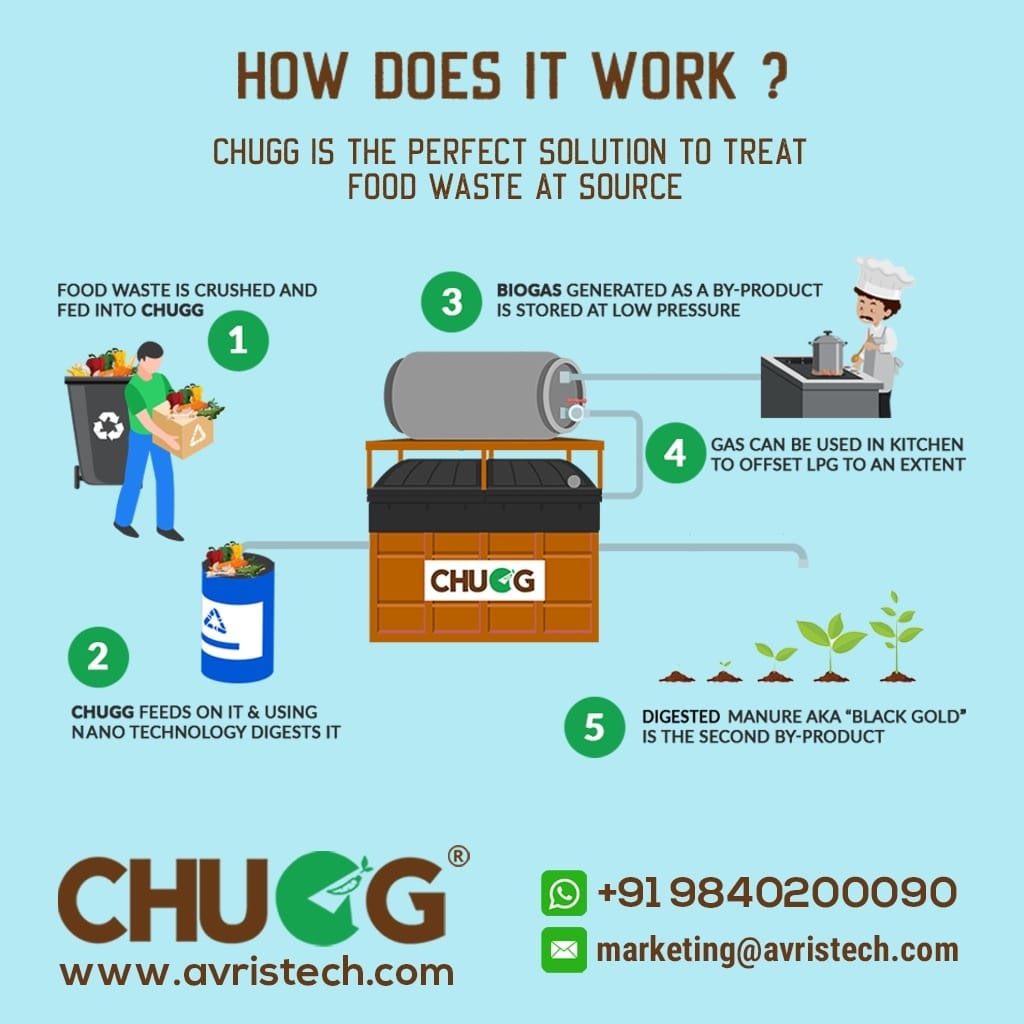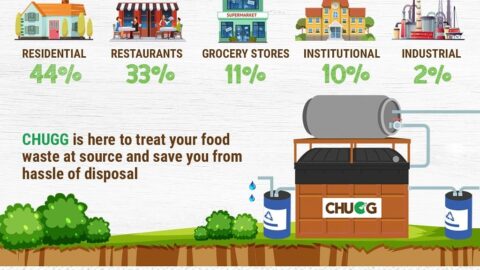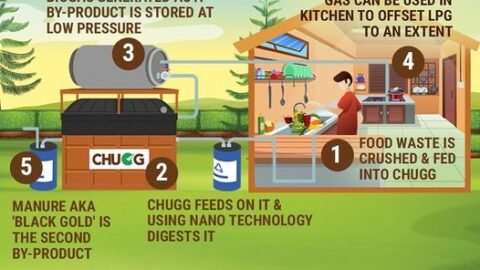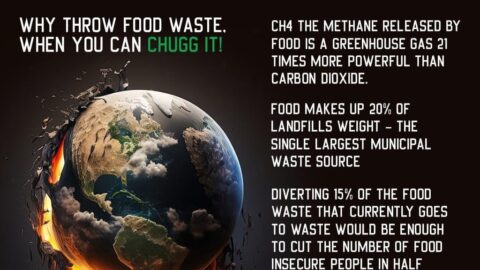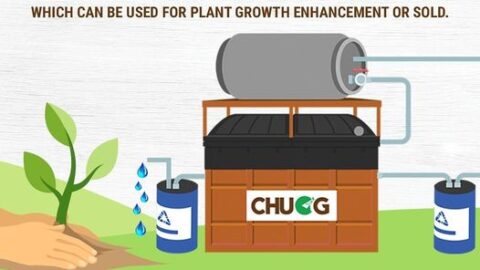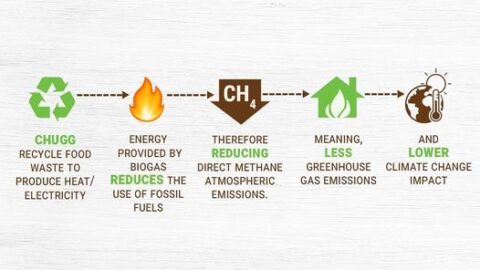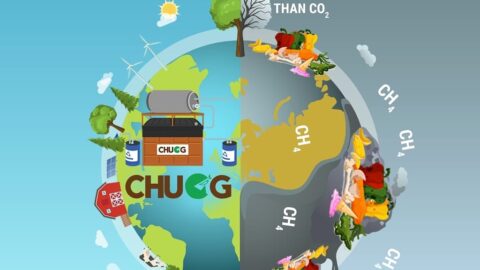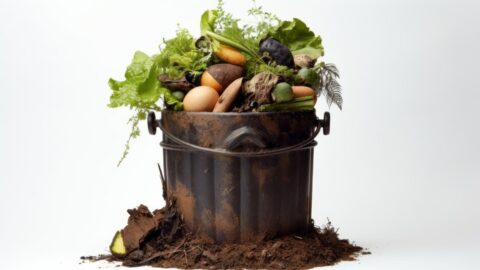Food waste is a critical global issue that has far-reaching consequences for both society and the environment. Every day, large quantities of edible food are discarded, contributing to food insecurity and hunger while placing a burden on waste management systems. Moreover, improper disposal of food waste in landfills leads to the generation of methane, a potent greenhouse gas that significantly contributes to climate change.
Addressing these pressing challenges requires innovative and sustainable solutions, and biodigesters have emerged as a transformative technology in managing food waste. Biodigesters offer a powerful approach to converting organic waste into renewable energy and nutrient-rich biofertilizers, effectively tackling food waste problems while promoting renewable energy solutions. In this comprehensive article, we delve into the workings of biodigesters, their numerous benefits, and explore how CHUGG’s advanced food waste treatment system complements the global adoption of this game-changing technology.
Why is it important to treat food waste?
Treating food waste is important for several reasons, all of which have significant environmental, social, and economic implications. Here are some key reasons why we should prioritize the proper treatment of food waste:
Environmental Impact: Food waste contributes to a substantial amount of greenhouse gas emissions when it ends up in landfills. As the food decomposes anaerobically, it produces methane, a potent greenhouse gas that is about 25 times more effective at trapping heat in the atmosphere than carbon dioxide. By treating food waste properly, such as through composting or anaerobic digestion, we can reduce methane emissions and their impact on climate change.
Conservation of Resources: Producing food requires valuable natural resources like water, land, and energy. When food is wasted, these resources are essentially squandered. By treating food waste, we can maximize the utilization of these resources and minimize their environmental footprint.
Biodiversity Protection: The production of food often involves habitat destruction and the use of pesticides, fertilizers, and other chemicals that can harm ecosystems and biodiversity. By reducing food waste, we can decrease the demand for excessive food production, thereby alleviating pressure on natural habitats and wildlife.
Economic Efficiency: Food waste represents a significant economic loss at both the individual and societal levels. When households, businesses, and industries manage food waste better, they can save money by avoiding unnecessary purchases, improving inventory management, and reducing disposal costs.
Food Security: In many parts of the world, there are populations suffering from hunger and food insecurity. Proper treatment of food waste can potentially redirect surplus food to those in need through food donation programs and other initiatives, thus improving food access for vulnerable communities.
Sustainable Development Goals (SDGs): The United Nations’ Sustainable Development Goals include a target to halve food waste and reduce food loss by 2030. By treating food waste, we can actively contribute to achieving this global goal, promoting more sustainable consumption and production patterns.
Ethical Considerations: In a world where millions of people go hungry, it is ethically imperative to reduce food waste. Treating food waste helps address issues of social justice and equity, as it can redirect surplus food to those who need it most.
How Biodigesters Work?
Biodigesters are a remarkable application of anaerobic digestion, a natural biological process where microorganisms break down organic matter in the absence of oxygen. These anaerobic conditions are created within a sealed biodigester tank, providing an ideal environment for anaerobic bacteria to thrive.
In the biodigester, various types of organic waste, including food scraps, agricultural residues, and animal manure, undergo anaerobic digestion. During this process, the microorganisms feed on the organic matter, breaking it down into simpler compounds. This biological breakdown produces two valuable products:
1. Biogas: A Renewable Energy Source
The breakdown of organic matter within the biodigester releases biogas, a mixture primarily composed of methane (CH4) and carbon dioxide (CO2). Biogas is a highly flammable and energy-rich gas that can be harnessed as a renewable energy source. It offers diverse applications, such as:
Electricity Generation: Biogas can be used to fuel generators, producing electricity that can power homes, businesses, and even entire communities.
Cooking and Heating: In households and industries, biogas can replace traditional fossil fuels like LPG, providing a clean and sustainable source of energy for cooking and heating needs.
Transportation: In some cases, biogas can be compressed and used as a clean fuel for vehicles, reducing emissions and lessening dependence on conventional fossil fuels.
2. Biofertilizer: Enhancing Soil Health
After the anaerobic digestion process is complete, the remaining slurry, known as biofertilizer or digestate, is rich in nutrients and organic matter. This biofertilizer is an excellent alternative to chemical fertilizers and can be used to improve soil health and agricultural productivity. It enhances soil structure, water retention, and nutrient availability to plants, promoting sustainable farming practices and reducing environmental impacts.
Benefits of Biodigesters
Biodigesters offer a wide range of benefits that make them a compelling solution for food waste management and renewable energy generation:
1. Waste Reduction and Methane Mitigation
By diverting organic waste from landfills, biodigesters play a crucial role in mitigating methane emissions. Methane is a powerful greenhouse gas with several times more potential for global warming than carbon dioxide. By capturing and utilizing biogas, biodigesters effectively reduce methane emissions, contributing significantly to climate change mitigation.
2. Renewable Energy Generation
The biogas produced by biodigesters serves as a renewable energy source that can replace fossil fuels. By utilizing biogas for electricity generation and other energy needs, biodigesters contribute to reducing the carbon footprint and advancing the global transition towards sustainable energy systems.
3. Resource Recovery and Circular Economy
Biodigesters exemplify the principles of the circular economy by converting waste into valuable resources. Instead of being a problem to manage, food waste becomes a valuable input for generating clean energy and nutrient-rich biofertilizers. This integration of waste management and energy production exemplifies a more sustainable and resource-efficient approach.
4. Improved Soil Health and Agricultural Productivity
The application of biofertilizer from biodigesters enriches the soil with organic matter and essential nutrients, leading to improved soil fertility and healthier crops. The use of organic fertilizers also reduces the environmental impact of chemical fertilizers, safeguarding water bodies and ecosystems from pollution.
5. Versatility and Scalability
Biodigesters come in various sizes and configurations, allowing them to be adapted to different waste volumes and contexts. From small-scale household systems to large industrial installations, biodigesters offer versatile and scalable solutions for diverse waste streams and energy needs.
CHUGG – The Advanced Food Waste Treatment System
As the demand for more efficient and effective food waste treatment solutions grows, CHUGG has developed an innovative and advanced food waste treatment system. Combining biodigestion technology with cutting-edge features, CHUGG’s system represents a comprehensive and sustainable approach to food waste management.
Key Features of CHUGG Food Waste Treatment System
High Biogas Yield: CHUGG’s system is engineered to maximize biogas production during anaerobic digestion, ensuring optimal energy generation from food waste.
Efficient Digestion: The advanced design of CHUGG’s system ensures efficient and rapid digestion of organic waste, reducing overall processing time and increasing system capacity.
Modular and Scalable: CHUGG’s system is designed with modularity in mind, enabling easy scalability for various waste volumes, from small-scale to large-scale operations. CHUGG comes in two variants namely CHUGG-35 and CHUGG-75 with different capacities.
Smart Monitoring and Control: The integration of smart monitoring and control systems optimizes the biodigestion process, ensuring stable and consistent performance.
Low Maintenance: CHUGG’s system is engineered for low maintenance requirements, reducing operational costs and enhancing long-term sustainability.
Global Adoption and Future Prospects
The global adoption of biodigesters and advanced food waste treatment systems like CHUGG is on the rise. Governments, businesses, and communities worldwide recognize the potential of these technologies in addressing food waste challenges and promoting renewable energy solutions.
As technology continues to advance, we can expect further improvements in biodigester efficiency and accessibility, making them an even more viable solution for transforming food waste problems into renewable energy solutions. The integration of smart technologies and process optimizations will enhance the performance and applicability of biodigesters, fostering a future where these systems play an even more significant role in sustainable waste management and energy production.
CHUGG’s advanced food waste treatment system holds the key to a sustainable and transformative solution to the challenges posed by food waste. By harnessing the power of anaerobic digestion, these systems convert organic waste into renewable energy and nutrient-rich biofertilizers, reducing greenhouse gas emissions and enhancing agricultural productivity.
The global adoption of CHUGG- innovative food waste treatment systems signifies a step forward in creating a circular economy, where waste becomes a valuable resource. As we embrace these sustainable solutions, we take significant strides towards a greener and more sustainable future, where food waste is no longer a problem but a catalyst for renewable energy solutions.
To know more about Biodigester

